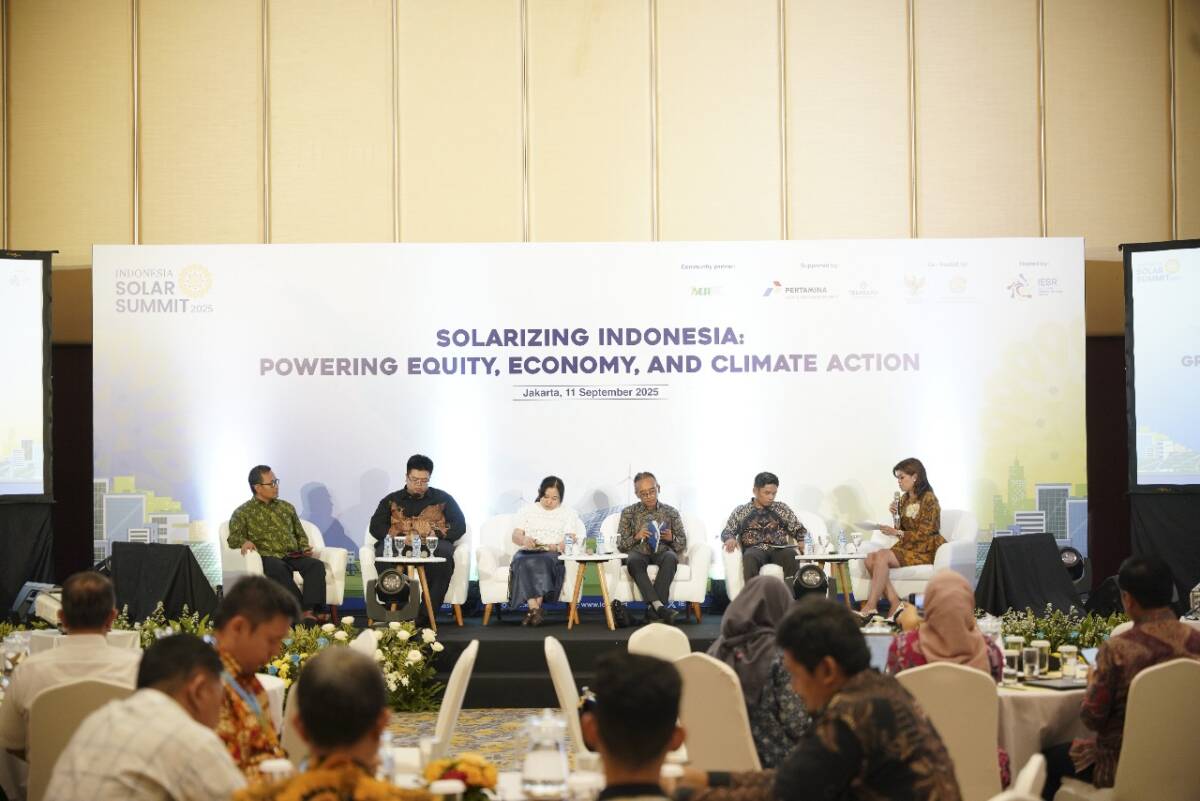Jakarta, September 11, 2025 – Indonesia is accelerating its efforts towards industrial decarbonization, partly by leveraging solar energy. This transformation is not only part of the national energy transition agenda but also a strategy to boost industrial competitiveness amidst global demands for environmentally friendly practices.
Winardi, from the Directorate of Industrial Zoning at the Ministry of Industry, stated that currently, there are around 171 industrial estates spread across Indonesia. Of this number, West Java has the most, with approximately 56 estates. The presence of these industrial estates serves as the backbone of manufacturing activities and a significant opportunity to implement clean energy solutions.
“One tangible step in applying renewable energy in industrial estates is seen in the solar panel project at the Batamindo Industrial Estate. This project is part of the Global Eco-Industrial Parks Programme (GEIPP) Indonesia, with a pilot project capacity of 472 kWp. This solar power plant began commercial operation on April 1, 2025, serving as a concrete example that industries can use clean energy to reduce carbon emissions while also cutting long-term energy costs,” Winardi emphasized during the Green Industry Powered by the Sun session at the Indonesia Solar Summit 2025, organized on Thursday (9/11) by the Institute for Essential Services Reform (IESR).
Besides Batamindo, the Jababeka Industrial Estate in Cikarang has also shown its commitment to becoming a renewable energy-based area. Vega Violetta Puspa, Director of Operations and Sustainability at PT Jababeka Infrastruktur, mentioned that so far, 13 companies in Jababeka have implemented solar power plants (PLTS) with a total capacity of 9.1 MWp. This figure represents a concrete step by the industrial estate in reducing carbon emissions and improving energy efficiency.
“In terms of company type, the majority of those implementing solar power are private limited companies (non-Tbk/public), with 9 companies, while only 4 Tbk companies have adopted this technology. This indicates that the adoption of solar energy is not limited to large public companies but is also followed by non-public companies with similar awareness,” explained Vega.
Farid Wijaya, a Senior Analyst at the Institute for Essential Services Reform (IESR), stated that solar power plants can be a strategic renewable energy (RE) source that industries can directly use. This technology is flexible because it can be installed in various locations without waiting for the construction of large infrastructure. However, companies face limitations. For example, when off-grid solar systems are used, there is a need for additional investment in energy storage systems (batteries), which are still relatively expensive. This causes some companies to postpone development due to high initial costs.
“The investment needed for solar power plant construction depends on several factors, such as capital costs, land use, and the capacity being built. However, the use of solar power doesn’t always require a large area. Industries can maximize existing space, for example, by installing solar panels on building rooftops, parking areas, or even the fences of industrial estates,” Farid explained.
On the other hand, Nur Pamudji, Supervisor of the Indonesian Solar Energy Association (AESI), said that besides solar energy, other renewable energy sources like mini-hydro also have significant potential, especially in the southern part of Java. However, their development still faces challenges due to relatively high investment costs, which can reach double digits.
“To overcome this, industrial estates can implement a swap scheme, where the industrial estate owner contracts to build a mini-hydro power plant in another area, for example in southern Java, while the resulting energy is allocated as part of the green energy mix for that industrial estate. For this mechanism to work, active government support is needed to encourage regulations and incentives for inter-regional swaps,” said Pamudji.
Meanwhile, Stevanus Wisnu Wijaya, a Researcher at Tenggara Strategics, highlighted that Indonesia’s energy needs are growing rapidly in line with the development of digitalization and the increasing use of data centers. Data centers are now the backbone of various digital services, from public services and transportation like airports to daily business activities. Therefore, it is important to manage data centers to be energy-efficient, environmentally friendly, and integrated with renewable energy sources (green data centers).

